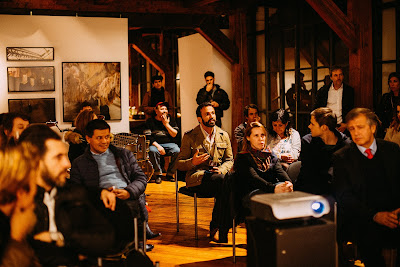Event marketers are constantly striving to create memorable experiences for their audiences. While meticulously planned agendas can be good, leaving room for spontaneity during events can yield remarkable results. In this article, I’ll explore the value of incorporating flexibility into your event agenda and how it can enhance the event brand, engage the audience, and ultimately drive the success of your events.
The Role of Event Marketers
Event marketers’ primary responsibility is to promote and
execute events that leave a lasting impact on both attendees and the event
brand. Traditionally, events have been meticulously planned from start to
finish, with every minute accounted for. However, the dynamics of audience
engagement are changing, and event marketers need to adapt their strategies
accordingly.
The Evolution of Event Marketing
In the past, event marketing focused on a fixed agenda,
highlighting key speakers, topics, and activities. While this approach can be
effective, it often overlooks the diverse interests and preferences of the
audience. Modern event marketing should consider the desires and expectations
of attendees, emphasizing a personalized and interactive experience.
The Power of Flexibility
Embracing flexibility means allowing for spontaneity and
adjusting the event flow based on audience feedback and preferences. Here are
several reasons why incorporating flexibility into your event marketing
strategy can be advantageous:
Enhancing Event Brand: A flexible approach can demonstrate
that your event brand is responsive, audience-centric, and adaptable. This can
create a positive perception among attendees and boost brand loyalty.
Engaging the Audience: Allowing the audience to shape part
of the event agenda fosters a sense of ownership and involvement. Interactive
sessions, Q&A panels, or open forums can encourage active participation and
engagement.
Meeting Diverse Interests: Your audience likely consists of
individuals with varied backgrounds and interests. Allowing for flexibility
ensures that different audience segments can find value in the event.
Real-time Feedback: Flexibility enables you to gather
real-time feedback on what's working and what's not. This information can be
invaluable for improving future events and fine-tuning your event marketing
strategy.
Implementing Flexibility Strategically
While the benefits of flexibility are clear, it's important
to strike a balance. Here's how you can incorporate flexibility into your event
marketing strategy effectively:
Pre-event Surveys: Collect data on attendee preferences and
expectations before the event. Use this information to shape your event agenda,
ensuring it aligns with the interests of your audience and your sponsors.
Designated Open Sessions: Allocate specific time slots for
unstructured activities or audience-driven discussions. This gives attendees
the freedom to explore topics of interest or network with peers.
Dynamic Event Apps: Utilize event apps that allow attendees
to customize their schedules and provide feedback in real-time. These apps can
also help you gauge audience sentiment during the event.
Moderated Audience Input: Incorporate audience suggestions
and questions into planned sessions. A skilled moderator can seamlessly weave
these inputs into the event's narrative.
In the ever-evolving landscape of event marketing,
flexibility is a powerful tool that can elevate your event brand, engage your
audience, and set your events apart. By giving your audience a say in shaping
the event agenda, you create an atmosphere of inclusivity and responsiveness,
which can lead to higher attendee satisfaction and increased brand loyalty.
Remember that while flexibility is useful, it should be
balanced with a well-structured foundation. Striking this balance will
enable event marketers to navigate the complexities of event promotion and marketing to deliver exceptional experiences that resonate with their audience's needs and
goals. As you continue to refine your event marketing strategy, consider how
embracing flexibility can contribute to the success of your events.
Stay tuned for more insights and tips on event marketing success.


Comments
Post a Comment